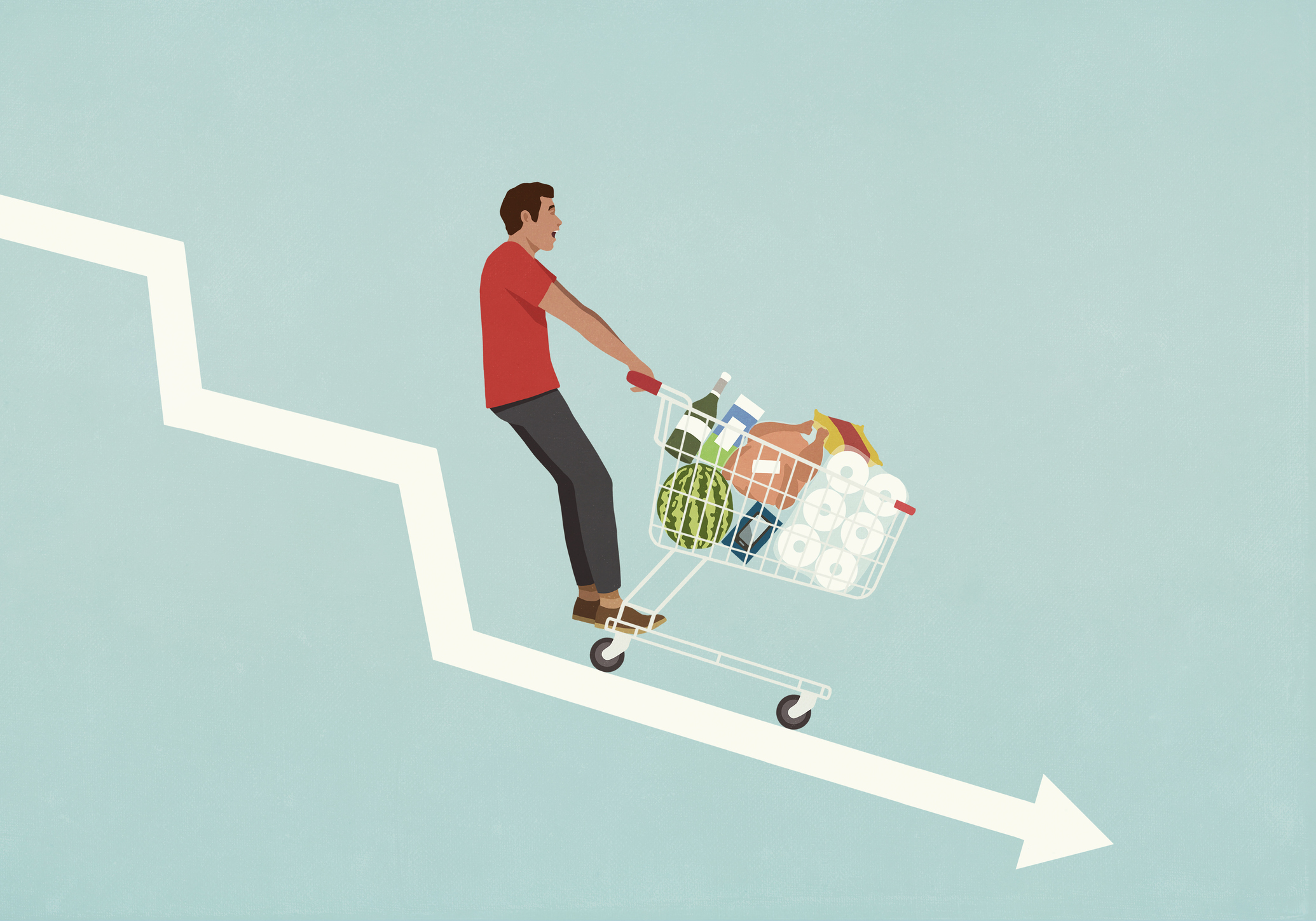Prices are going down. Here's where you can see the difference.
'An era of price hikes is fading,' but that doesn't mean prices will all come down


A free daily email with the biggest news stories of the day – and the best features from TheWeek.com
You are now subscribed
Your newsletter sign-up was successful
Believe it or not, after a long couple of years of inflation, prices are starting to come down. According to Nerdwallet, citing data released in November by the Department of Labor, the "consumer price index — a proxy for inflation — remained flat from September to October, at 3.2%." Moreover, the consumer price index report "shows year-over-year price index drops in 92 goods and services categories (among 338 measured)."
In further evidence of this trend, "retailers such as Walmart say an era of price hikes is fading," The Wall Street Journal reported. Meanwhile, "Adobe, which tracks online sales through its analytics arm, predicts holiday discounting will hit record highs."
Where are prices dropping the most?
Here are some of the major areas seeing price declines compared to a year or so prior:
The Week
Escape your echo chamber. Get the facts behind the news, plus analysis from multiple perspectives.

Sign up for The Week's Free Newsletters
From our morning news briefing to a weekly Good News Newsletter, get the best of The Week delivered directly to your inbox.
From our morning news briefing to a weekly Good News Newsletter, get the best of The Week delivered directly to your inbox.
Electronics: There have been some big drops in prices in a few major electronics categories. The price of computer software and accessories has declined by 8.5%, while smartphone prices are down 12% and televisions have dropped over 9%, according to Nerdwallet's reporting.
Home goods: Per the Journal, "home-goods prices soared during the pandemic’s nesting phase but have since fallen back to earth," as "prices for bedsheets, towel sets and other linens slid nearly 10% in October from a year earlier." Other home goods-related areas where prices have declined include living room furniture, lamps, and wall décor, per the Journal.
Sporting goods and toys: Prices for toys and sporting goods (think bikes, camping gear, tennis gear, etc.) are lower, too. "Toy prices fell nearly 4% in October from a year earlier," per the Journal, and "prices for sporting goods were down 1.2% in the same period."
Transportation: Gas prices are almost 11% lower mid-November compared to a year prior, while airline fares "were down 13% in October from a year earlier," according to the Journal. Additionally, per Nerdwallet, car and truck rental prices were down 9.6%, and public transportation costs had declined by almost 9%.
A free daily email with the biggest news stories of the day – and the best features from TheWeek.com
Food: The once astronomical cost of eggs has dropped by a whopping 22.2%. Other declining food prices include for lettuce, apples, butter, and fresh fish and seafood, wrote Nerdwallet.
Are there any areas where prices are still steep?
Of course, prices aren't yet going down across the board. Perhaps unsurprisingly to those in the market, housing costs are still on the up and up, as are costs for auto insurance and video streaming, according to Reuters.
Still, there's hope those costs will start to level off, too. "Economists at the Fed and on Wall Street are confident a turn lower is coming in a sector that accounts for a big portion of the consumer price index," said Reuters. Additionally, it's expected that when it comes to recent inflation, "driven by services items, such as auto insurance and video streaming, that will likely prove to be one-off adjustments."
Additionally, due to the Federal Reserve's aggressive series of rate hikes, the cost of borrowing remains steep. The Fed hikes have pushed "consumer borrowing rates to punishing highs, with credit-card rates above 20%," the Journal pointed out. This means those who rely on credit "might just find themselves paying more in the long run than they would have a few years ago."
What can we expect next for prices and inflation?
Here's the tough reality: Even if inflation continues to ease up, prices may not necessarily fall to where they once were. "Inflation falls ... but prices don't come down. They're just going up at a slower rate. What people have in their mind right now is ... prices to go back to where they were in 2021. That's not going to happen. These prices are probably there forever," said Fed Governor Christopher Waller at a research conference in November, Reuters reported.
Where inflation goes next hinges on a number of factors, one of which is consumer spending. According to Nerdwallet, "if consumer spending continues to increase, it could push the Fed to raise interest rates further," whereas if consumer spending drops off, "it could lead, once again, to concerns about a recession, which have otherwise largely dissipated."
Becca Stanek has worked as an editor and writer in the personal finance space since 2017. She previously served as a deputy editor and later a managing editor overseeing investing and savings content at LendingTree and as an editor at the financial startup SmartAsset, where she focused on retirement- and financial-adviser-related content. Before that, Becca was a staff writer at The Week, primarily contributing to Speed Reads.
